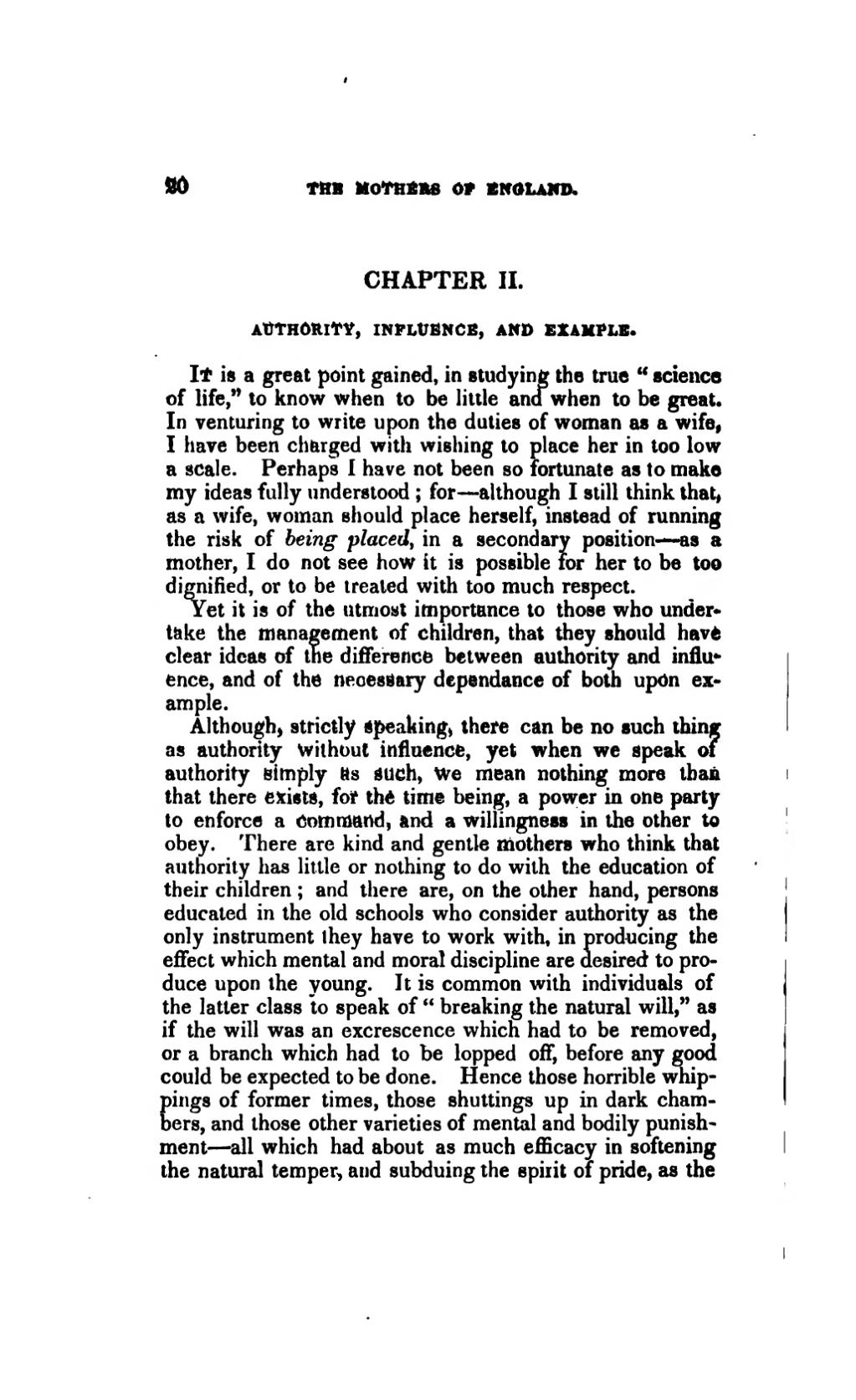CHAPTER II.
AUTHORITY, INFLUENCE, AND EXAMPLE.
It is a great point gained, in studying the true "science of life", to know when to be little and when to be great. In venturing to write upon the duties of woman as a wife, I have been charged with wishing to place her in too low a scale. Perhaps I have not been so fortunate as to make my ideas fully understood; for—although I still think that, as a wife, woman should place herself, instead of running the risk of being placed, in a secondary position—as a mother, I do not see how it is possible for her to be too dignified, or to be treated with too much respect.
Yet it is of the utmost importance to those who undertake the management of children, that they should have clear ideas of the difference between authority and influence, and of the necessary dependance of both upon example.
Although, strictly speakings there can be no such thing as authority without influence, yet when we speak of authority simply as such, we mean nothing more than that there exists, for the time being, a power in one party to enforce a Command, and a willingness in the other to obey. There are kind and gentle mothers who think that authority has little or nothing to do with the education of their children; and there are, on the other hand, persons educated in the old schools who consider authority as the only instrument they have to work with, in producing the effect which mental and moral discipline are desired to produce upon the young. It is common with individuals of the latter class to speak of "breaking the natural will," as if the will was an excrescence which had to be removed, or a branch which had to be lopped off, before any good could be expected to be done. Hence those horrible whippings of former times, those shuttings up in dark chambers, and those other varieties of mental and bodily punishment—all which had about as much efficacy in softening the natural temper, and subduing the spirit of pride, as the
